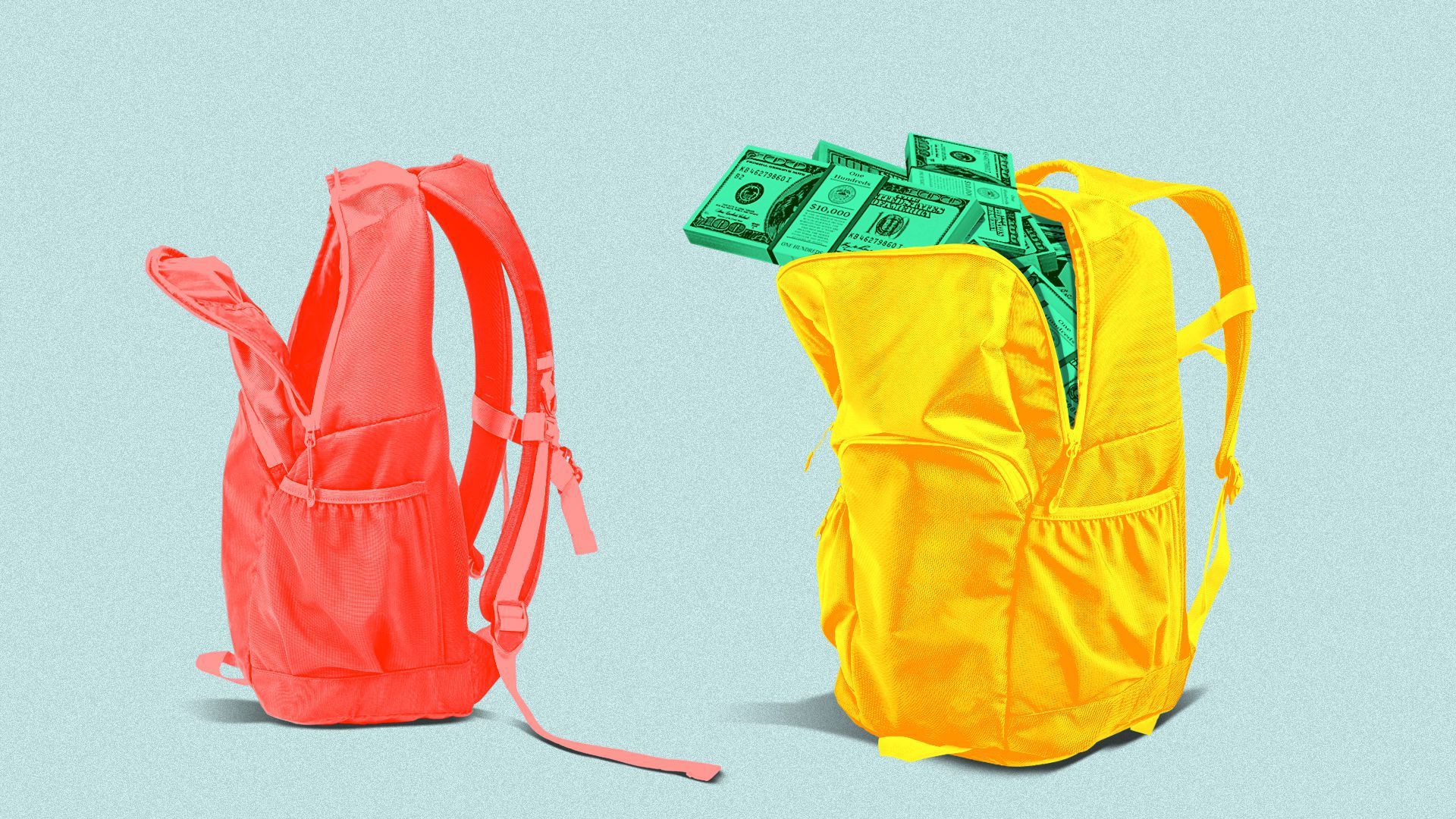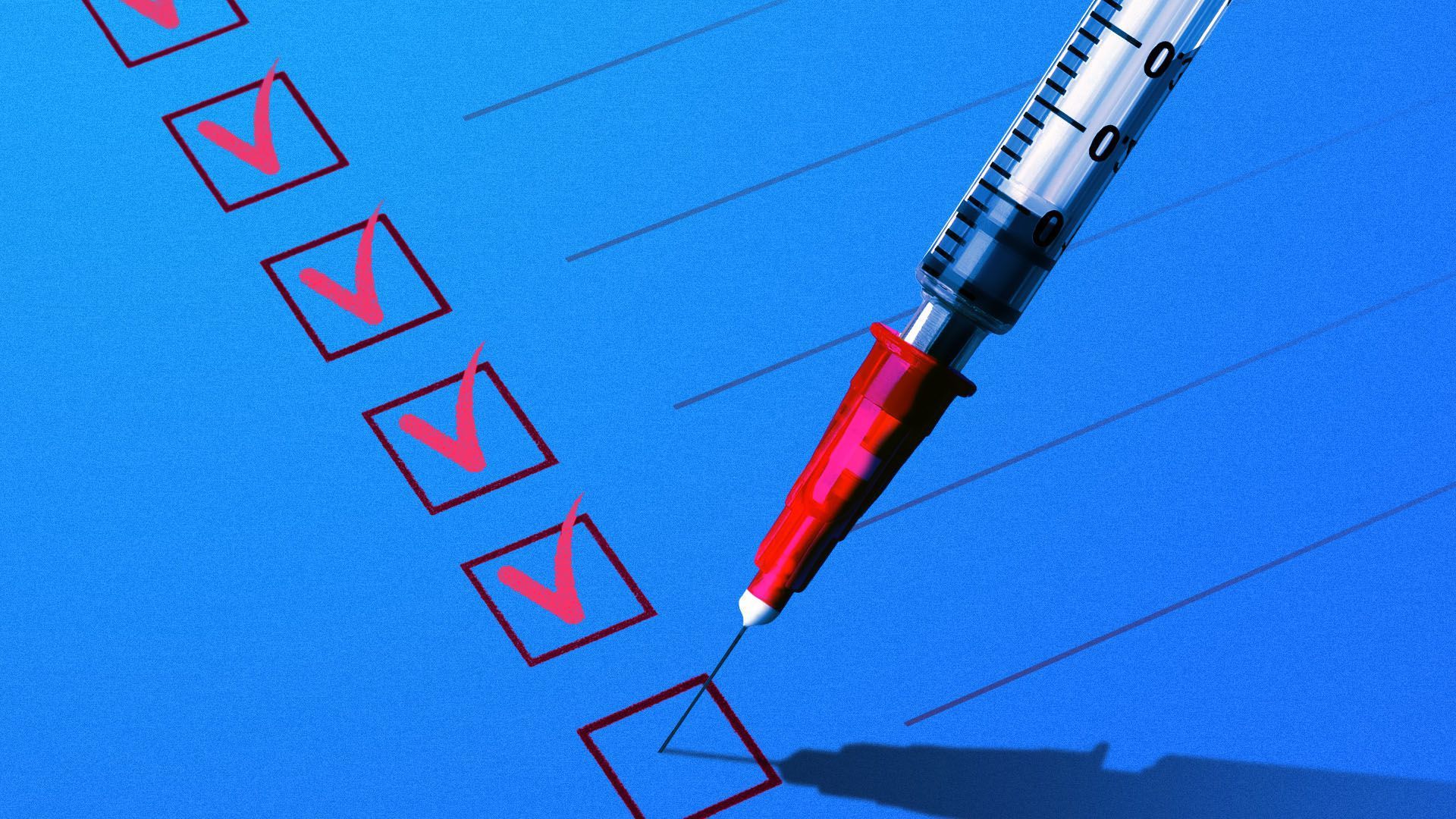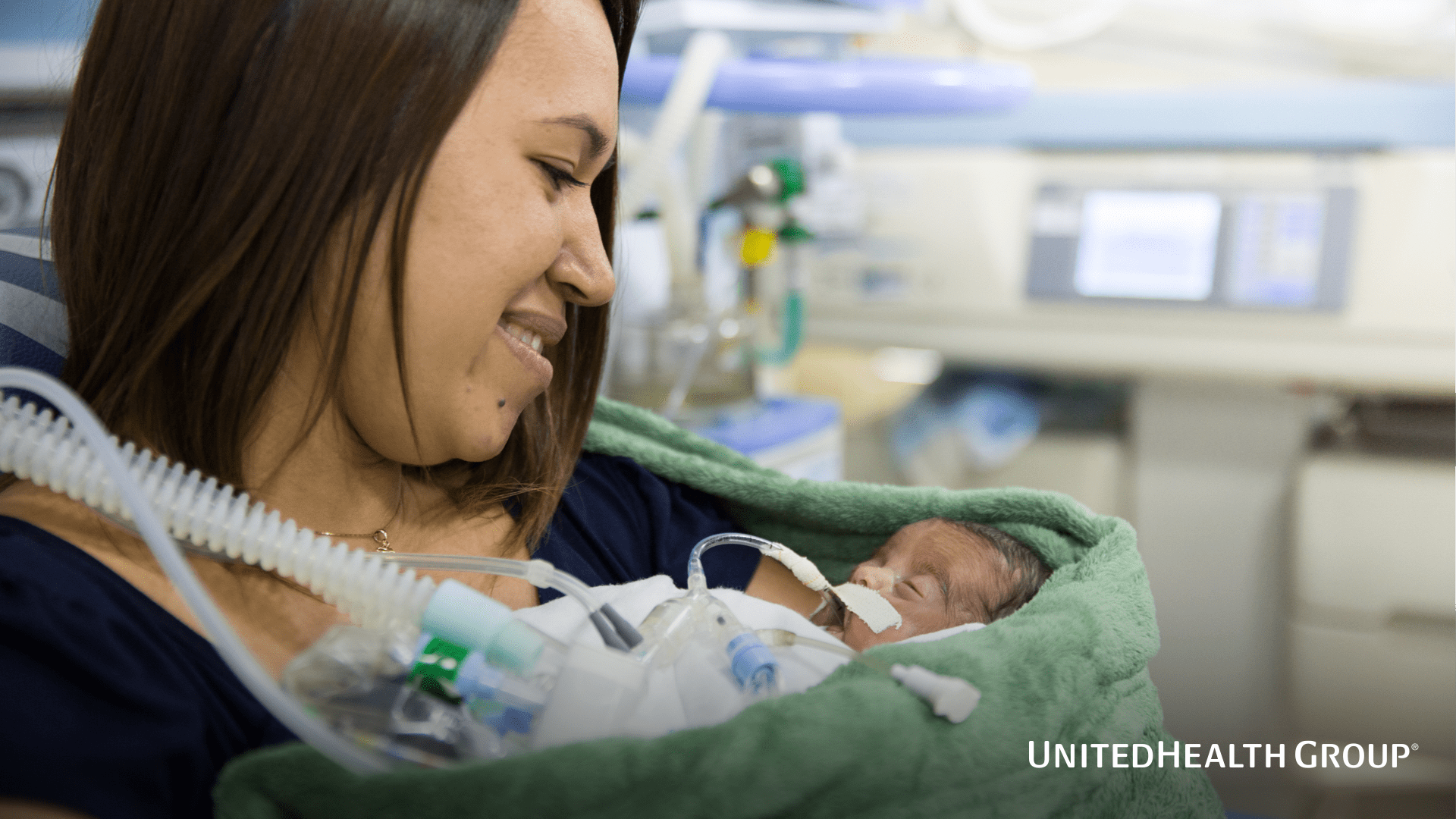| | | | | | | Presented By UnitedHealth Group | | | | Vitals | | By Tina Reed ·May 24, 2021 | | Good morning, everyone. Situational awareness: The latest attribute online daters can feature in their profiles? Their COVID-19 vaccination status. As White House adviser Andy Slavitt put it: "We have finally found the one thing that makes us all more attractive." Today's word count: 1,029, or a 4-minute read. | | | | | | 1 big thing: Employers dangle vaccine rewards despite legal hurdles |  | | | Illustration: Annelise Capossela/Axios | | | | Instead of mandating COVID-19 vaccination, more companies are offering employees cash, paid time off, and other financial incentives to get the shot, Axios' Bob Herman writes. The big picture: Employers are favoring "carrots" over "sticks," but those carrots could run afoul of federal law if the rewards are too big. The buzz: Dollar General, Houston Methodist, Kroger, Petco, Target and Walmart have offered various-sized cash stipends to workers. The bonuses usually don't exceed $500. Yes, but: There's no clear standard for how large rewards can be without violating federal disability, anti-discrimination, and privacy laws. - The U.S. Equal Employment Opportunity Commission previously said rewards involved with employer wellness programs could equal up to 30% of someone's health insurance premium without being too coercive or invasive. But a federal court invalidated that rule.
- The EEOC under the Trump administration then said companies could offer "de minimis" incentives, but the agency withdrew that guidance once the Biden administration took over.
- The EEOC told Axios the update on "employer vaccine incentives and other issues is ongoing."
One interesting example: Anthem's offering a credit to vaccinated employees that can be used to lower health insurance premiums (Anthem provides Anthem insurance to its employees). - Anthem originally said the credit was worth $50, but later retracted that press release and removed how much the credit was worth.
- "We aren't sharing the dollar amount ... and we've designed the program so it does not 'run afoul' of EEOC rules on wellness programs and vaccinations," an Anthem spokesperson said.
The bottom line: "Until the EEOC issues updated guidance, it's a bit risky to offer vaccination incentives," said Meghan O'Brien, an attorney at the law firm Archer who tracks this issue and recommends vaccine incentives equal no more than one day's pay. Share this story. |     | | | | | | 2. Health firms get into school reopening business |  | | | Illustration: Brendan Lynch/Axios | | | | Health companies and startups are getting into the business of helping K-12 schools in the U.S. figure out how to safely reopen in person — and stay open in person — in the fall. Why it matters: Even as cases come down nationwide, experts worry about the unknowns the fall could bring as people retreat indoors, Axios' Marisa Fernandez reports. - That's a particular concern with the uncertainty in child COVID vaccine uptake and adults' looming need for booster shots.
What's happening: Education nonprofits like the Rockefeller Foundation and Chiefs for Change have each launched initiatives to help schools find information about COVID-19 health tech and surveillance companies. - The Boston-based synthetic biology leader Ginkgo Bioworks partnered with about 1,000 schools, charging $5–$7 per student per week for pool testing.
- Bay Area health company Color and health data company HSR.health released an epidemiological model and risk index, respectively, for nearby schools to help calculate risks associated with adults and children in a school setting.
- On the vaccination front, CVS Health announced earlier this month it's expanding its "Return Ready" program, originally aimed at businesses, so schools can vaccinate 12–15 year-olds.
|     | | | | | | 3. Colleges navigate hurdles for international students |  | | | Illustration: Sarah Grillo/Axios | | | | Speaking of back-to-school logistics, colleges and universities are now tackling the challenge of ensuring international students get their COVID vaccine before returning to campus, Marisa writes. Why it matters: Ensuring international students can get their vaccines is one big piece of safely reopening — which, in turn, could also help reverse some of the dramatic enrollment declines U.S. colleges saw due to COVID-19. - More than 1 million international students were enrolled in the 2019-2020 school year in the U.S., according to data tracker Open Doors.
- "This is a big issue for the bottom lines of predominantly smaller, non-profit, regional, private institutions," Chris Marsicano, of the College Crisis Initiative, says. "So they've got to find ways to get students back into the classroom especially international students where they rely on tuition and revenue."
The big picture: Universities are working to answer questions like how to line up appointments for unvaccinated students, as well as how early those students would need to fly to the U.S. to get their shots. - Other details include working out whether vaccines received in students' home countries will suffice for vaccine mandates and how students will prove vaccination before the fall semester.
Go deeper. |     | | | | | | A message from UnitedHealth Group | | Helping to advance health equity with actionable insights | | |  | | | | For more than 30 years, the United Health Foundation's America's Health Rankings has provided actionable insights to identify health disparities across the U.S. - Our latest report identifies disparities among seniors, including food insecurity and risk of social isolation.
Read the report. | | | | | | 4. Vaccine mandates more popular than vaccine passports |  Data: The COVID States Project; Note: For the second question, respondents were randomly assigned one of four wordings of the question, and this chart shows the averages of the four wordings; Chart: Michelle McGhee/Axios There's much higher public support for government-imposed vaccine mandates than businesses' use of "vaccine passports," even if they're called something else, according to recent surveys by the COVID States Project, Axios' Caitlin Owens reports. Why it matters: Private businesses are increasingly responsible for making pandemic policy, but this polling suggests that it'd be much more popular for the government to take the stronger role, at least when it comes to vaccine requirements. By the numbers: 62% of respondents said they somewhat or strongly support local, state or federal governments requiring everyone to get a vaccine. - Even higher percentages supported vaccine mandates for getting on an airplane or going back to university.
- On the other hand, much fewer said they support vaccine "passports." The survey asked different versions of the question, but the results didn't change much based on wording, whether the question explicitly mentioned the term "vaccine passport" or not.
What they're saying: "It seems like the public is more comfortable with mandates when they're characterized as coming from the government," said Matthew Baum, a Harvard professor who was an author of the project. - "When you put businesses into the question as the responsible party ... support is just a lot lower."
|     | | | | | | 5. While you were weekending... |  | | | Illustration: Aïda Amer/Axios | | | | The revival of the "lab leak" theory of COVID-19 — that it started with a virus that originated in a laboratory — is drawing new attention to the dangers of scientific experiments that enhance pathogens to study them, Axios' Bryan Walsh writes. While plenty of major health systems weathered the pandemic's financial storm with the help of government aid, they were also acquiring weaker hospitals and ailing doctors' practices, the New York Times reports. COVID-19 cases may be down overall in the U.S. thanks to the vaccine. But the Washington Post took a deeper dive into the data looking at cases among the unvaccinated and found "in some places, the virus continues to rage." An advisory panel for the Centers for Disease Control and Prevention is investigating a few reports of heart inflammation in young adults following their inoculation from two-dose mRNA vaccines, Axios' Orion Rummler reports. |     | | | | | | A message from UnitedHealth Group | | Working to improve maternal care in underserved communities | | |  | | | | Nearly 1 in 4 women do not receive essential prenatal care. - Through local community partnerships in states like Nevada, Hawaii, Michigan and Ohio, UnitedHealth Group is helping to reduce maternal health disparities.
Learn more about how we're advancing health equity. | | | | | | Axios thanks our partners for supporting our newsletters.
Sponsorship has no influence on editorial content. Axios, 3100 Clarendon Blvd, Suite 1300, Arlington VA 22201 | | | You received this email because you signed up for newsletters from Axios.
Change your preferences or unsubscribe here. | | | Was this email forwarded to you?
Sign up now to get Axios in your inbox. | | | | Follow Axios on social media:    | | | | | |









No comments:
Post a Comment